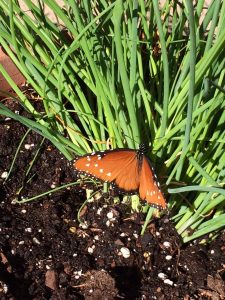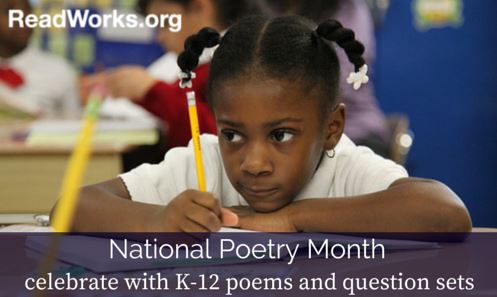Category: Creativity
Tags: #CCEFinland, #HarnessingImagination, Australian Writers' Centre, College of Environmental Science and Forestry, Curriculum Resources, Fall Leaves, Haiku, Helen Teague, Poetry, STEAM, STEM, Thinglink
We returned from #CCEFinland to full-out fall leaves courtesy of a sudden freeze while we were away. Keeping to our presentation theme of #HarnessingImagination, we brainstormed some lesson ideas while we raked the leaves and gathered components for our Thanksgiving centerpiece.
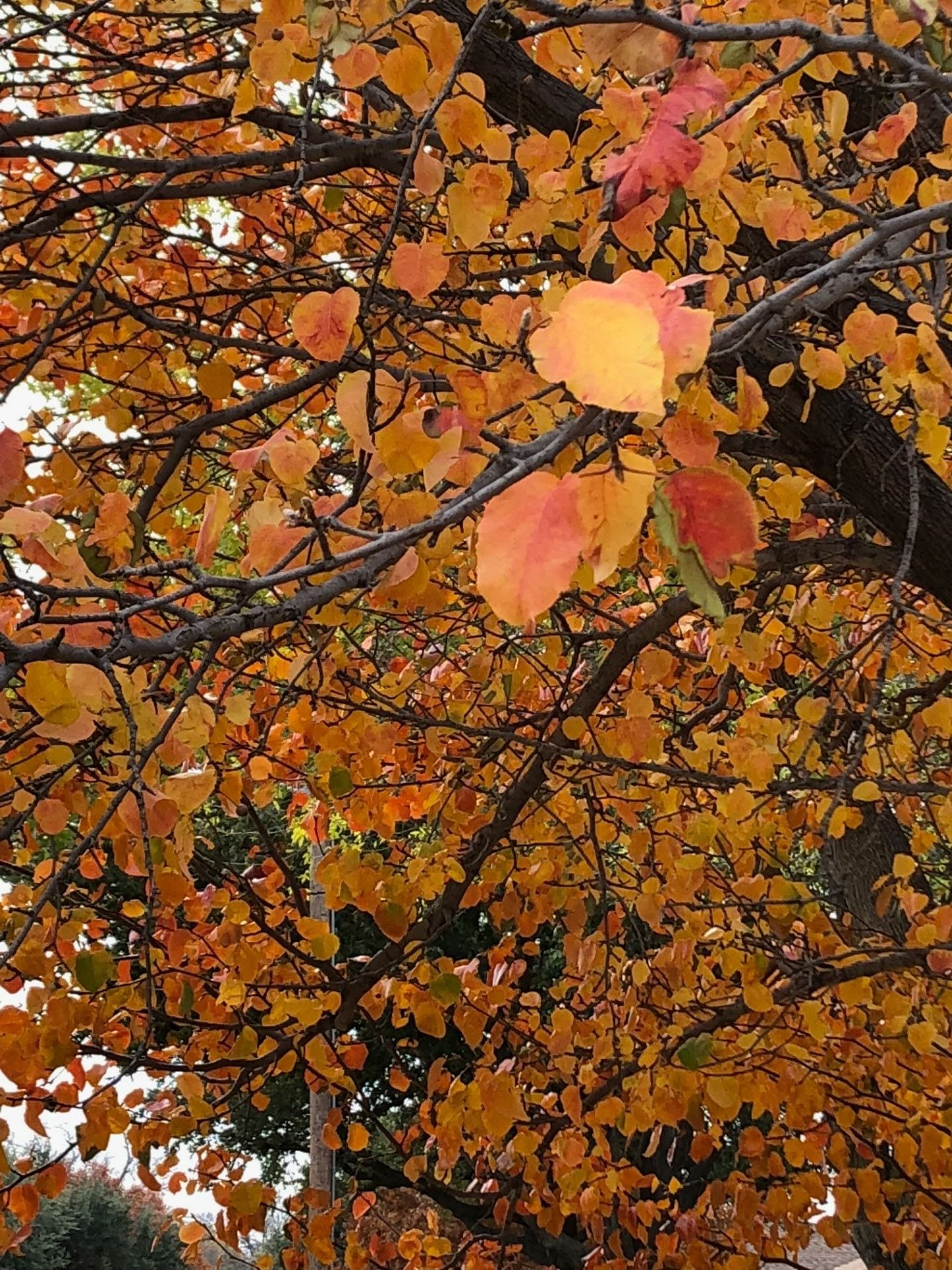
Teachable Moments, like turkey giblets, are never wasted. For a STEM connection, I can use the photos along with information from ESF State University of New York to form the basis of a ThingLink scavenger hunt on the science behind why leaves turn different colors in fall. ThinkLink Inc. is a Finnish-American in-image app created in 2010 by Ulla Engeström and Janne Jalkanen. Depending on time limitations (and how compelling the Black Friday sales are), I can ask students to either complete the Scavenger Hunt that I create or they can add their own components.
Question 1: What design elements would you add to this lesson?
Question 2: What standards does this lesson address?
Please leave a comment with your ideas.
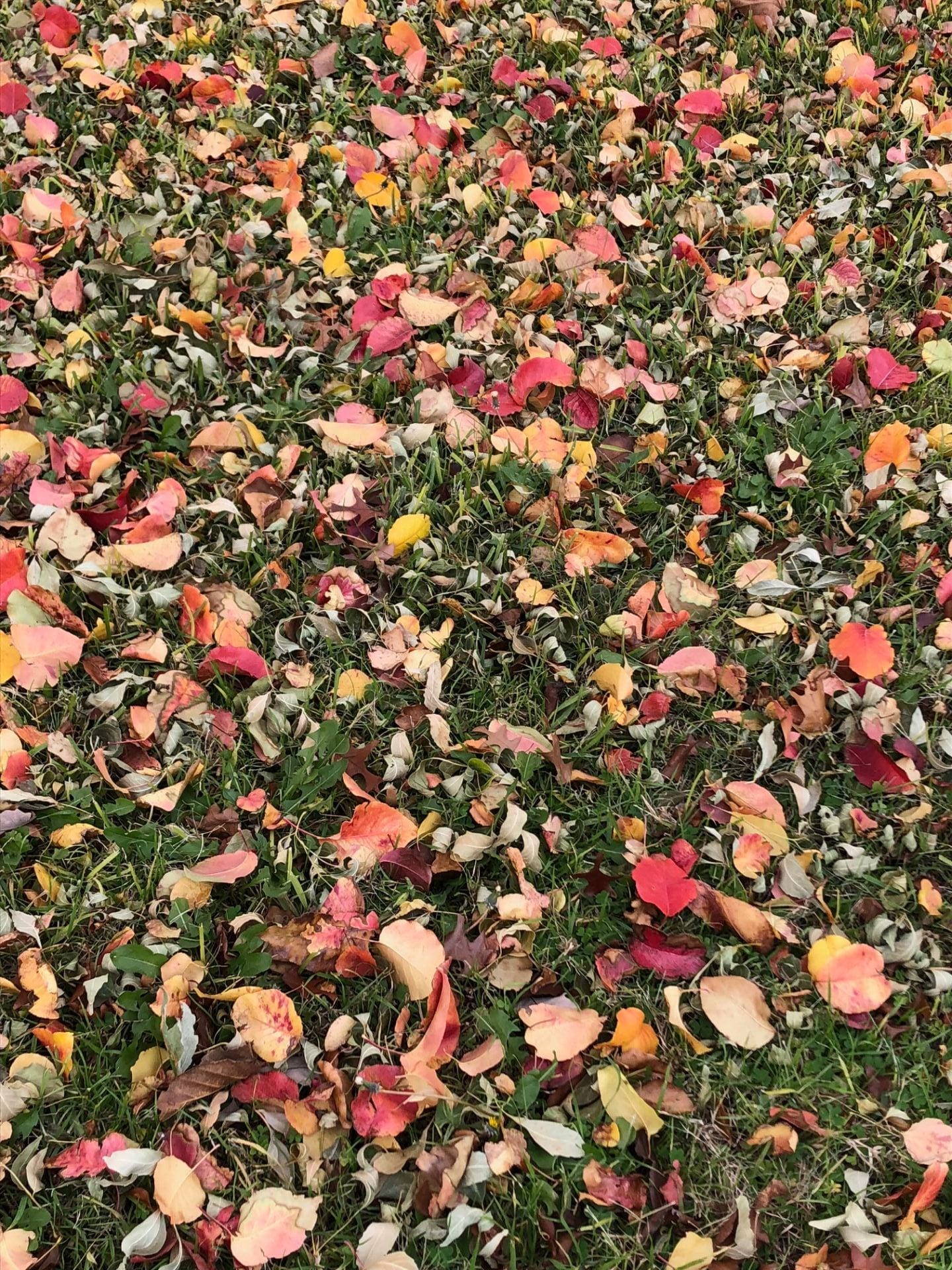
The leaves transformed the lawn to a carpet of color. For a STEAM connection, I can use the photos of the multi-color lawn as a palette for student composed poetry/haiku. After reading and discussing the technique of haiku from the Australian Writers’ Centre, student teams can take turns writing alternating lines of the poem or haiku. Alternately, students can choose to work solo on their poem/haiku.
Question 3: What design elements would you add to this lesson?
Question 4: What standards does this lesson address?
Please leave a comment with your ideas.
Tomorrow’s post will feature the STEM lesson Thinglink deliverable. Click here to view.
All of the outside color found a place on our Thanksgiving table with our Fall Centerpiece of Safflower blossoms, garden parsley, rosemary, and chives. A little glitter spray paint glammed up some of the outside English laurel leaves.
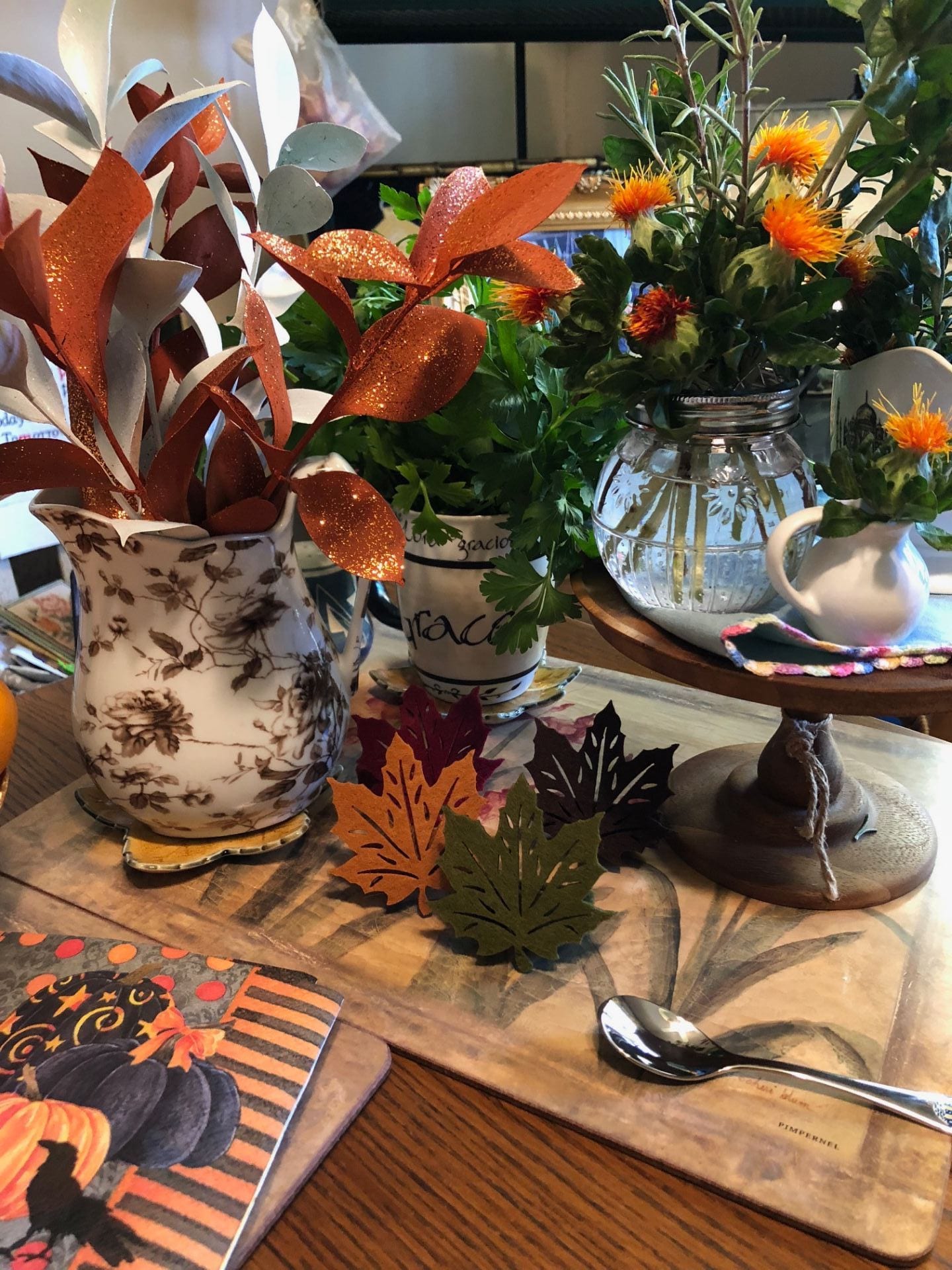
References:
#HarnessingImagination
Australian Writers’ Centre, (2018, April 19). 19 Haiku poems about Autumn. Retrieved from
https://www.writerscentre.com.au/blog/19-haiku-poems-about-autumn/
College of Environmental Science and Forestry, State University of New York (2018). Why Leaves
Change Color. Retrieved from: https://www.esf.edu/pubprog/brochure/leaves/leaves.htm
All photos by Teague




